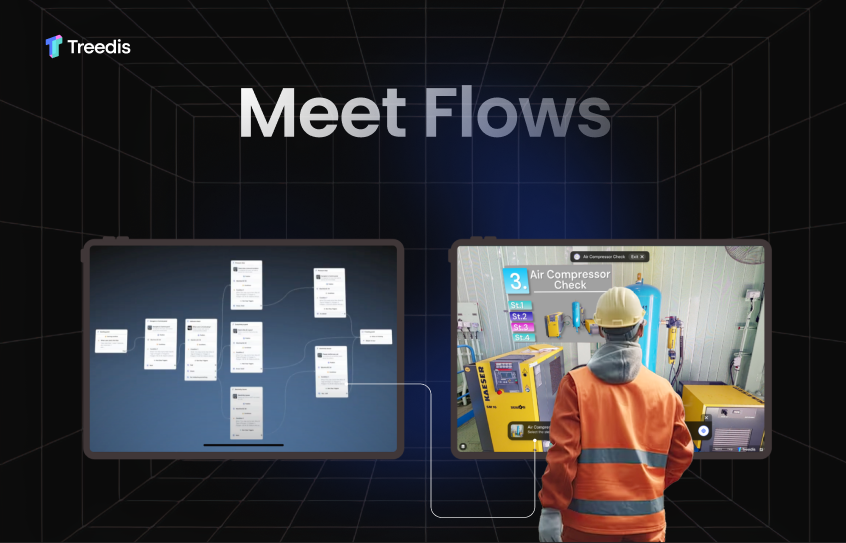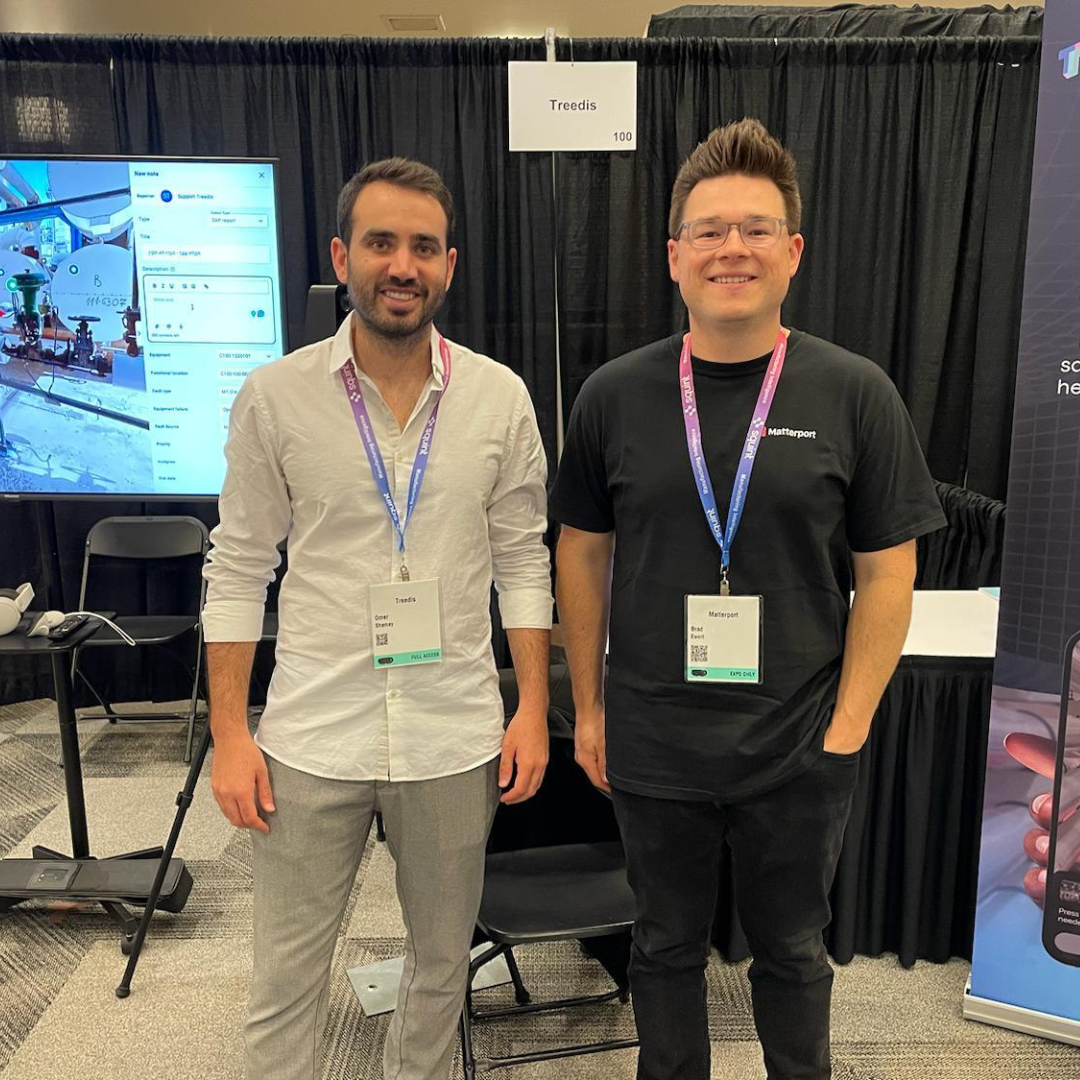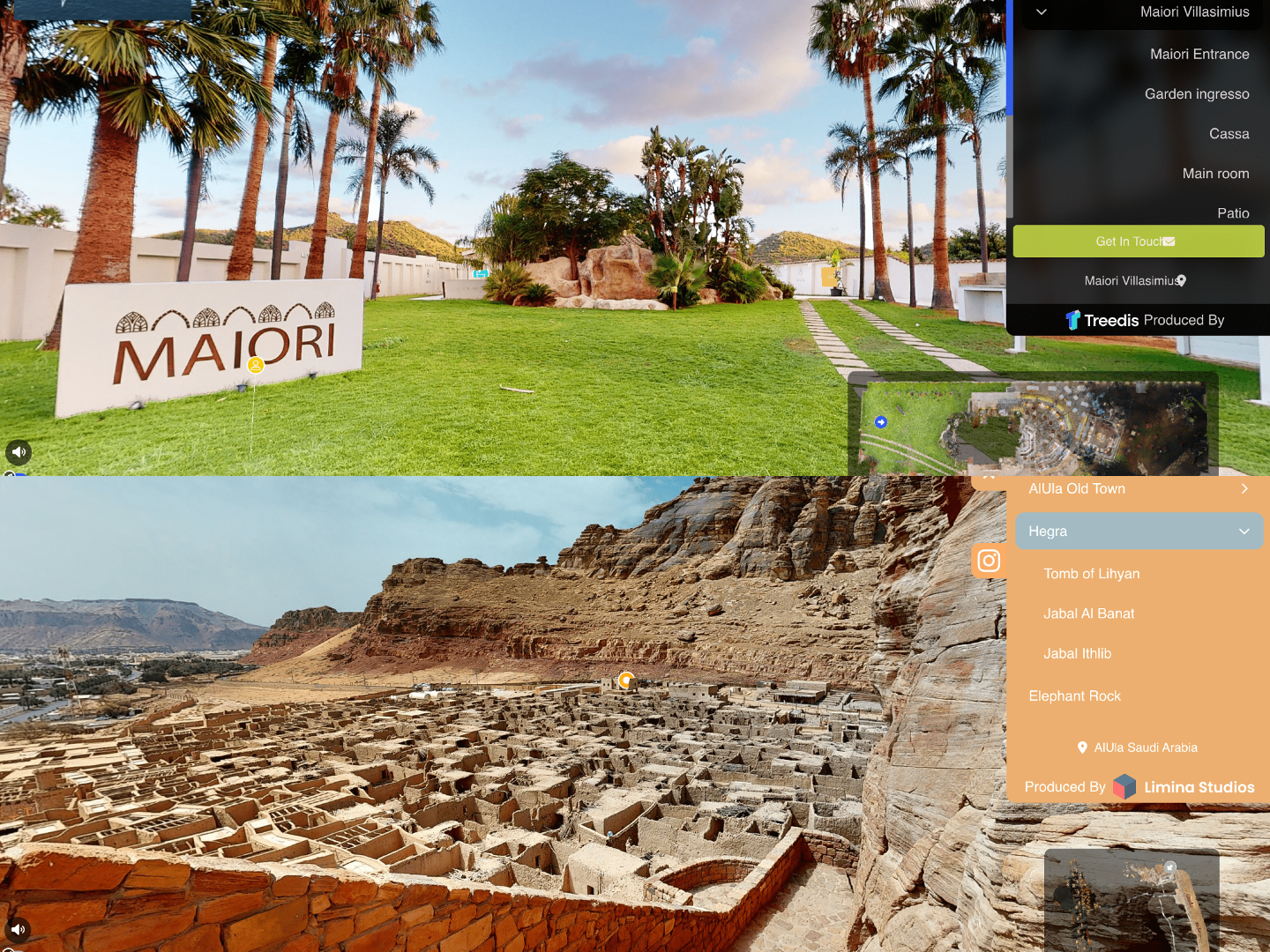May 30, 2025
Blog
Enhancing Customer Experience with Immersive Technologies in the Travel and Hospitality Industry
.png)
600.png)

As technology continues to advance, so do our means of experiencing the world around us. Virtual, augmented, and mixed reality technologies have already made a significant impact on the travel and hospitality industry, both in terms of visitor experience and operational efficiencies. On top of that, as Tech Giants like Apple with their Vision Pro headset or Meta Quest are driving interest in these technologies, Travel and Hospitality businesses need to keep up.
In this blog, we'll explore the different types of immersive technologies and discuss their evolution in the industry, and highlight how they're changing the way we travel and plan our vacations.
Enhancing the Customer Experience with Immersive Technologies
In today's world, technology has revolutionized the way we experience things. The travel industry is no exception, as it has embraced immersive technologies to enhance the customer experience before, during, and after the journey. Let's take a closer look at how virtual, augmented, and mixed reality are transforming the travel and hospitality industry.
Pre-Booking Marketing: Immersive Previews and Virtual Tours
One of the most significant impacts of immersive technologies on the travel industry is in pre-booking marketing efforts. Hotels and destinations can now leverage AR and VR technologies to provide potential guests with immersive experiences that showcase their offerings and entice them to book their stay.
- Virtual Hotel Tours: Hotels can leverage digital twin technology to create virtual tours that enable potential guests to explore their rooms, common areas, and facilities. Using immersive virtual reality experiences, guests can walk through the hotel's lobby, get a glimpse of different room types, and immerse themselves in the ambiance. These virtual tours provide a realistic and interactive preview, allowing guests to envision their stay and make more informed booking decisions. By offering this immersive experience, hotels can significantly influence potential guests' perception and increase their likelihood of making a reservation.
- Virtual Destination Experiences: Hotels can partner with local attractions or tour operators to create VR experiences that showcase the destination's highlights. This can include virtual tours of popular landmarks, immersive cultural experiences, or adventurous activities. By offering these virtual experiences, hotels can entice potential guests with the destination's unique offerings and increase their interest in booking.
-
Post-Booking Engagement: Enhancing the Guest Experience
Immersive technologies continue to enhance the guest experience even after the booking process is complete. Hotels can utilize AR and VR technologies to provide guests with personalized and engaging experiences during their stay.
- Virtual Concierge Services: Hotels can provide guests with AR-enabled mobile apps that offer virtual concierge services. Through these apps, guests can access information about hotel amenities, nearby attractions, recommended restaurants, and exclusive offers. They can also use AR to scan physical maps or signs in the hotel to receive instant digital information overlays, making navigation and exploration more convenient.
- AR Wayfinding: Finding your way around a sprawling hotel or resort can be a daunting task. However, with augmented reality wayfinding, guests can easily navigate their way through complex spaces using their smartphones or AR-enabled devices. By simply pointing their device's camera in a specific direction, guests can see virtual arrows or markers overlaid on their real-time camera view, guiding them to their desired locations. This technology eliminates the frustration of getting lost and enhances the overall guest experience.
- In-Room Entertainment and Personalization: Hotels can incorporate VR technology into in-room entertainment systems, allowing guests to access a library of virtual experiences, including virtual tours of other destinations, immersive games, or 360-degree videos showcasing local attractions. Additionally, guests could personalize their in-room ambiance through AR or MR, adjusting lighting, temperature, and decor virtually to suit their preferences.
- Interactive Scavenger Hunts: Hotels can take wayfinding a step further by incorporating interactive scavenger hunts within their premises. By utilizing AR technology, hotels can create exciting and immersive scavenger hunts for guests to explore the property and uncover hidden treasures. Guests can follow virtual clues and search for digital objects or markers throughout the hotel, engaging in a thrilling adventure. As an incentive, hotels can offer rewards such as spa treatments, dining vouchers, or room upgrades to guests who successfully complete the scavenger hunts. These interactive experiences not only entertain guests but also encourage them to further explore the hotel's amenities and facilities.
- Virtual Events and Meetings: Hotels can leverage MR technology to create virtual event spaces and meeting rooms. This enables guests to participate in virtual conferences, attend remote meetings, or collaborate with colleagues from anywhere in the world. Virtual event capabilities can expand the hotel's reach and attract businesses looking for innovative solutions for their gatherings.
-
Immersive technologies have the potential to revolutionize the way we travel and experience the world. They provide opportunities for hotels and destinations to engage with potential guests in unique and exciting ways, making their offerings more tangible and memorable.
But implementing these technologies can sometimes be challenging. Traditionally, hotels have had to rely on multiple providers and platforms to integrate these immersive experiences into their operations. This fragmented approach often resulted in compatibility issues, technical difficulties, and increased costs. However, thanks to Treedis, hotels now have a streamlined and efficient solution that simplifies the implementation process and overcomes these challenges.
The Treedis Mixed Reality Advantage
Implementing Treedis in the travel and hospitality industry is remarkably straightforward and cost-effective. The platform requires the creation of a digital twin of the hotel, which serves as the foundation for all the immersive experiences it offers.
Once the digital twin is uploaded, businesses can easily integrate Treedis and its range of VR and AR.
Treedis Enhanced Virtual tours
Imagine using Treedis to create virtual tours of their rooms and amenities. Whether it's with a virtual reality headset, or with their computer and mobile devices. guests can experience the hotel realistically. In addition to walking through virtual rooms, guests can interact with virtual objects and make more informed booking decisions.
Treedis Augmented Reality App
Treedis also enables AR experiences to be integrated into hotel environments. By using AR, hotels can provide guests with virtual concierge services, including restaurant menus, spa services, and activity schedules, using their smartphones or AR glasses. In addition, they can receive personalized recommendations for nearby attractions and restaurants. Hotels can also use Treedis Wayfinder to improve guest navigation and find these desired destinations.
Personalized Guided Tours with Treedis' Experience Creator
Additionally, Treedis' Experience Creator feature allows hotels to create guided tours and interactive experiences. Hotels can, for example, create AR scavenger hunts, where guests explore the hotel, solve puzzles, and get virtual rewards. The goal isn't simply to entertain guests, but to create a close relationship with the hotel.
In conclusion, virtual, augmented, and mixed reality technologies are reshaping the travel and hospitality industry, offering immersive and engaging experiences for travelers. From pre-booking marketing efforts to post-stay personalization, these technologies have the power to transform the way we plan, experience, and remember our journeys. As we move forward, embracing the possibilities of immersive technologies will undoubtedly unlock new horizons in the world of travel.
Using Treedis, businesses can engage customers, improve planning processes, and differentiate themselves from their competitors. Hotels can create immersive and memorable experiences that captivate guests and drive positive brand experiences with its VR and AR compatibility.
More Articles
More Articles



May 30, 2025
Future-Proofing Operations with Flows
Want your team to train better? We have your solution. This blog breaks down our standout feature, Flows, showing it's potential for your organisation.
.png)

Jan 14, 2025
How Immersive Technologies Are Revolutionizing Workforce Training and Closing the Skills Gap
Immersive technologies like AR, VR, and digital twins are revolutionizing workforce training by addressing the growing skills gap with engaging, hands-on learning experiences. These solutions enhance retention, boost productivity, and reduce costs, making them essential for dynamic, scalable training in a rapidly evolving job market.


Nov 27, 2024
What's Next For Training? Takeaways From The Augmented Enterprise Summit
In October, we joined the Augmented Enterprise Summit (AES) with Matterport, connecting with industry leaders and Fortune 500 companies while sharing key XR insights.


Jun 28, 2024
Digital Twin Awards: Success Stories
The Digital Twin Awards honor virtual tour innovation. This year, Treedis users Farhad Berahman from Limina Studios and Francesco Loddo from SardiniaVirtualTours3D won in historical and hospitality categories. Farhad's tour of AlUla captivated 2 million viewers, while Francesco's tour of Maiori Villasimius boosted bookings by 25%. Their achievements showcase the transformative power of Treedis technology.
%20(1).jpg)

Jun 5, 2024
Key Insights from Hannover Messe: The Future of Manufacturing in Industry 4.0
At the 2024 Hannover Messe, Treedis showcased its Connected Workers solution with AWS, Vodafone Business, and Matterport, integrating digital twins and live sensor data to enhance manufacturing efficiency. This collaboration highlighted the importance of strategic partnerships in advancing Industry 4.0. Treedis remains committed to providing scalable, innovative solutions for the evolving manufacturing landscape.


.jpg)
.png)











